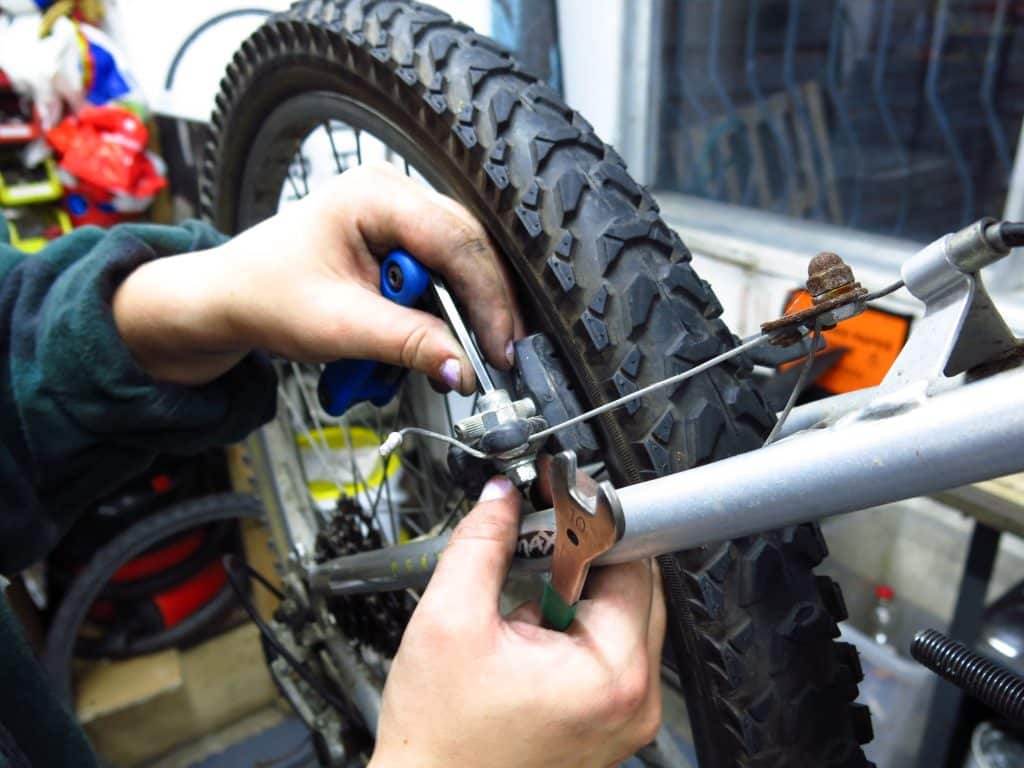Building independence and growing expertise: How mental health volunteering benefits everyone involved
When Phil met Anthony through our volunteering mentor scheme, Get Connected, they discovered a shared love of bikes and developed a connection that empowered Anthony to move forward in life.
Why did you choose to volunteer with Second Step?
I’m in my 50s and have enjoyed a great career working as a management consultant in healthcare in the UK and internationally. I’m not clinical but recognise the critical challenges and needs in the NHS, mental health being one of them. So, I’m halfway through an Open University Degree in Psychology with a view to morphing my career into counselling.
Second Step offered some interesting opportunities to get real experience of working with clients to supplement degree learning. I am very supportive of the role charities play in supporting the formal health sector (I’m also the Chairman and Trustee of a medical imaging and diagnostics charity).
The role of charities is crucial if we are to take the pressure off the NHS and the Second Step philosophy is also invaluable in helping people who use mental health services to find their way out of ‘the system’ and regain some independence and autonomy.
Can you tell us more about your role and the work you did?
I’m relatively new to Second Step and have worked as a volunteer mentor with a client in Bristol. Anthony is a man in his 50s whose ability to work is constrained by debilitating pain in both his legs. He finds prolonged sitting and standing very painful. This led to a process which made Anthony, who lives in a small flat in Fishponds, become more and more lonely and excluded, despite volunteering as a baker once a week at a community farm in Bedminster
I met Anthony more or less weekly for a number of weeks and we explored opportunities to change this process. Anthony (and I) did a few sessions volunteering at The Bristol Bike Project (which involves stripping down and refurbishing bikes) once a week.

We also managed to secure him a volunteering job at Cancer Research in Fishponds. He has since given up The Bristol Bike Project but he does a couple of day at Cancer Research and they have upped his hours which he is happy about. We have also enquired about opportunities at the library and I’ve encouraged him to do more research himself.
We also did a couple of bike rides along the Bristol to Bath cycle path. Cycling is one exercise his legs can tolerate. We managed to combine general chat, updates and plans reasonably effectively. Indeed, in some ways it was more effective than sitting face to face.
I would say Anthony seems much happier, more confident and more sociable than when we first met. He tells me that he often goes for a pint with a friend after a few hours of volunteering at Cancer Research which I took to be a good thing.
How has the experience affected you?
It’s been a great learning experience. I spent a lot of time finding out about Anthony’s life before making any plans. In spite of some confidence issues, he was assertive and dismissive about what was possible and I sometimes felt he was creating barriers to action (I realised he genuinely was not). We found a good balance. I attended the bikes thing with him, but when it came to Cancer Research, he did that by himself and quickly developed a rapport with the other staff over chats and cups of tea.
I also feel a genuine sadness that we will disengage from things soon (and I think he feels the same). We have developed a really good level of trust and openness. He is a remarkable individual, good company and I will miss him.
I’ve realised I need to see this an occupational hazard and a necessary consequence of having made progress. I believe he can progress well now and my role in his life risks hindering that.
What’s next for you?
More of the same. Longer term I’m keen to look at potentially working with ex-offenders, children and adults. I had some excellent training and signed up for some training which was unfortunately unfunded. I’d love to do more training particularly with real world practitioners. But fundamentally more work with clients.
What would you tell others about volunteering at Second Step?
Great set up, lovely people. My mentoring experience has been great and the training first class.
Find out more about volunteering at Second Step.
Thanks to The Bristol Bike Project for the images used in this article.
